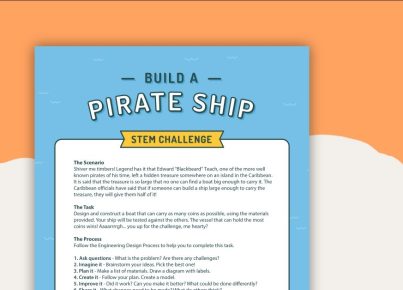Introduction
The world of education is constantly evolving, and the focus on STEM (Science, Technology, Engineering, and Mathematics) programs has never been more critical. Industry leaders emphasize the importance of well-rounded STEM education to equip today’s students with the tools they need to meet future demands. However, not all STEM curriculums are created equal. In this article, we will explore four essential skills that your STEM curriculum must teach to ensure students excel in the real world.
1. Critical Thinking and Problem Solving
Critical thinking is more than just gaining knowledge; it’s about learning how to apply, analyze, and evaluate information to make decisions or solve problems effectively. Students must be able to break down complex issues and identify their underlying components while prioritizing resources and actions. Effective STEM curriculums use hands-on learning activities that promote critical thinking skills by placing real-world problems into context.
2. Collaboration and Communication
In today’s interconnected world, collaboration and communication are integral aspects of any profession. A well-rounded STEM curriculum should encourage group projects and presentations that force students to rationalize their findings, negotiate with their peers, and work together as a team. By fostering a supportive environment where students can hone their communication skills, educators prepare them for various situations they will face in their careers.
3. Creativity and Innovation
Creativity plays an essential role in STEM fields as students will frequently encounter challenges that demand unique solutions. Encouraging creativity gives them the license to think outside the box and test unorthodox approaches when faced with unexpected obstacles or constraints. Innovative thinking is crucial for thriving in competitive industries like technology and engineering, where new ideas are paramount for success.
4. Adaptability and Resilience
As technology changes rapidly, an ability to adapt quickly is increasingly valuable for future professionals in STEM fields. Students must learn to embrace change and approach it as an opportunity for growth. Additionally, resilience teaches students that failure is an integral part of the learning process – a stepping stone rather than a roadblock. Developing adaptability and resilience in students is vital to prepare them for the ever-changing landscape of their future careers.
Conclusion
An excellent STEM curriculum encompasses more than just the academic subjects at hand; it provides students with essential life skills that translate into real-world success. By ensuring your curriculum focuses on critical thinking, collaboration, creativity, and adaptability, you will create confident, capable individuals ready to tackle the challenges they’ll face in their future pursuits.





